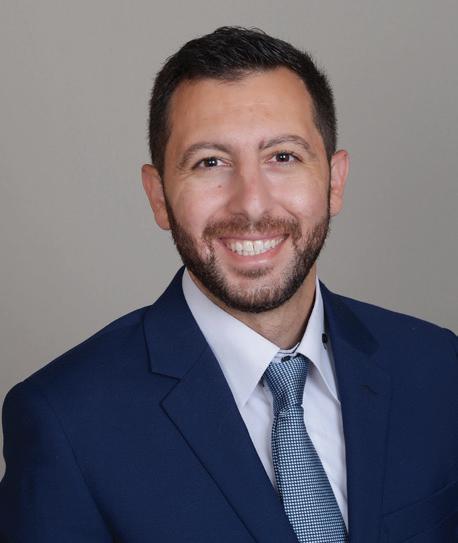
2 minute read
ESTHER NEVEAH ESQUIVEL
University of Arizona
Estheresquivel@arizona.edu
Advertisement
Esther Nevaeh Esquivel is a first-generation college student attending the University of Arizona. She was born in Tucson, Arizona but her family descends from the states of Zacatecas and Sonora. She is a junior working to receive her Bachelor of Physiology and Medical Sciences with a minor in Biochemistry. Her long-term plan involves pursuing medical school to realize a career in obstetrics and gynecology. Her goal as a medical doctor is to work with underserved communities. Being fluent in Spanish and English, she wants to help limit language barriers within the underserved communities and healthcare services. Being raised in a border town has exposed Nevaeh to the health disparities and knowledge gaps present in her community. She hopes to raise awareness and contribute her part in abolishing these barriers. In the fall, she will be a part of the F.A.C.E.S. Conversantes program with the University of Arizona where she will receive training and opportunities to volunteer as a medical interpreter in health care facilities located in southern Arizona. In her free time, Nevaeh plays the violin with Mariachi Sonido de Mexico for various communities in Tucson. She would like to thank her amazing family and friends who raised her to be who she is today.
⊲ PROJECT
INFERRING ANCESTRY USING NEXT-GENERATION SEQUENCING TO HAVE A MORE ACCURATE ASSAY ABOUT HOW GENETIC VARIATION AFFECTS GENE EXPRESSION IN AN ADMIXED POPULATION
The objective of this study is to accurately infer ancestry using next-generation sequencing techniques from the data of 33 individuals from Tucson, Arizona. F.L.A.R.E (also known as fast local ancestry estimation) is a program that achieves exceptional computational performance through incorporation of computational techniques developed for genotype imputation. RfMix (also known as rapid and robust local-ancestry inference) is another computational program created for genotype imputation. RFMix shows high sensitivity and specificity in simulated Hispanics/Latinos and African Americans and admixed Europeans, Africans, and Asians. Ancestry can affect the mapping of various traits to various alleles. Additionally, patterns of swapping are different in varying populations. Through this research we can acquire relatively accurate local ancestry estimates for free. Furthermore, we can have a more powerful assay about how genetic variation affects gene expression in admixed populations. In this research, Nevaeh learned how to perform next-generation sequencing using computational techniques. She showed ability in processing big data, troubleshooting and generating a report using various programs including R, freebayes, bcftools and tabix. These programs allow to call genotypes in addition to visualizing, transforming, and filtering big data.
DARREN CUSANOVICH PhD Assistant Professor, Cellular and Molecular Medicine Darrenc@arizona.edu
Our lab is interested in understanding how the human genome regulates itself to bring about all of the cellular diversity present in our bodies. In addition, we are interested in how genetic variation and environmental exposures in human populations impact that regulation and sometimes leads to complex disease. The particular disease model that we focus on is asthma, a complex disease affecting ~10-20% of the population that involves many cell types of the lung and immune system and offers exquisitely detailed examples of gene-environment interactions that influence disease outcomes. To study these phenomena, we use single-cell genomics technologies so that we can evaluate the impact of genetic and environmental variability from the perspective of whole tissues rather than having to isolate individual cell types or use simplistic cellular models. Working at the nexus of functional genomics, computational biology, and cellular biology, our group is both experimental and computational and often has to develop novel technologies or methods to address our research questions.





